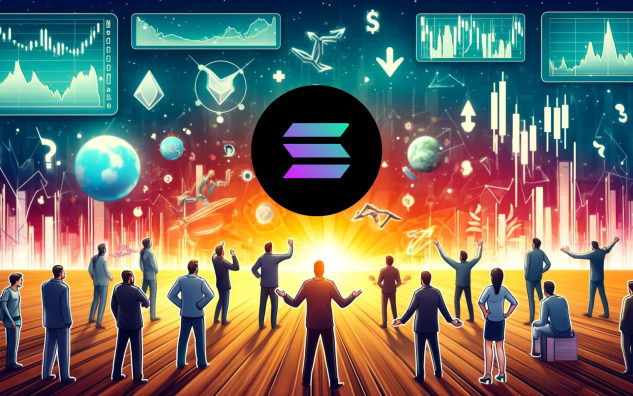
SOL is the native token of Solana, which has performed well in the blockchain industry. However, in order to better understand its strengths and weaknesses, we need to compare SOL with other mainstream blockchain platforms such as Ethereum, Polkadot, and Cardano. This article will make a detailed comparison from multiple dimensions such as performance, scalability, security, and developer friendliness to reveal the uniqueness of SOL in the fierce competition.
Performance comparison
Performance is one of the key indicators of a blockchain platform. Solana achieves high performance of processing thousands of transactions per second through its innovative Proof of History (PoH) protocol and Tower BFT consensus algorithm.
Solana: Processes about 65,000 transactions per second with a block confirmation time of 400 milliseconds.
Ethereum: Processes about 15 transactions per second with a block confirmation time of 15 seconds.
Polkadot: Processes about 1,000 transactions per second with a block confirmation time of 6 seconds.
Cardano: Processes about 250 transactions per second with a block confirmation time of 20 seconds.
From a performance perspective, Solana has a clear advantage, with high throughput and low latency making it a good performer when processing large volumes of transactions.
Scalability Comparison
Scalability is the ability of a blockchain platform to adapt to growing user needs and application scenarios. Solana achieves good scalability through its technical architecture.
Solana: Adopts a horizontally scalable architecture, and achieves expansion of data storage and processing through Cloudbreak database and Archivers storage solutions.
Ethereum: Ethereum 2.0 upgrade is in progress, and scalability is improved through sharding technology, but it is still in the transition stage.
Polkadot: Achieves expansion through a parachain and relay chain architecture, and each parachain can independently process transactions and smart contracts.
Cardano: Achieves expansion through a layered architecture, with the computing layer and settlement layer operating independently, which improves the flexibility and scalability of the network.
Solana's horizontally scalable architecture enables it to quickly adapt to growing user needs, while other platforms improve scalability through different technical means.
Security Comparison
Security is a core requirement of a blockchain platform, which is related to the security of user assets and the stability of the network. All major blockchain platforms have adopted different security mechanisms.
Solana: Using Tower BFT consensus algorithm and PoH protocol, it ensures the security of the network through decentralized verification nodes.
Ethereum: Using PoW (Proof of Work) consensus algorithm, and plans to switch to PoS (Proof of Stake) consensus algorithm in Ethereum 2.0 to improve security and energy efficiency.
Polkadot: Using NPoS (Nominated Proof of Stake) consensus algorithm, it improves the security of the network through parallel chain and relay chain architecture.
Cardano: Using Ouroboros PoS consensus algorithm, it ensures the security and fairness of the consensus process through mathematical proof.
Solana's Tower BFT and PoH combination provides an efficient security mechanism, while other platforms ensure the security of the network through different consensus algorithms and architectural designs.
Developer Friendliness Comparison
Developer friendliness is a key factor for blockchain platforms to attract and retain developers. Solana provides a series of development tools and resources to help developers build and deploy applications more easily.
Solana: Provides development tools such as Solana SDK, Anchor framework, SPL Token standard, as well as rich documentation and tutorial resources.
Ethereum: has a mature developer community and tools, such as Solidity smart contract language, Remix IDE, and Truffle framework.
Polkadot: provides Substrate framework to help developers quickly build parachains, as well as Polkadot.js API and tools.
Cardano: provides Plutus smart contract platform and Marlowe contract language, as well as rich developer resources and support.
Solana's developer friendliness lies in its comprehensive development tools and resource support, while other platforms attract developers through mature communities and tool ecosystems.
Conclusion
Through comparative analysis, we can see that SOL has unique advantages in performance, scalability, security, and developer friendliness. Although each platform has its unique design and advantages, Solana's high performance and innovative technology make it stand out from the competition. In the future, Solana will continue to promote technological innovation and ecosystem construction, and make greater contributions to the development of the blockchain industry.